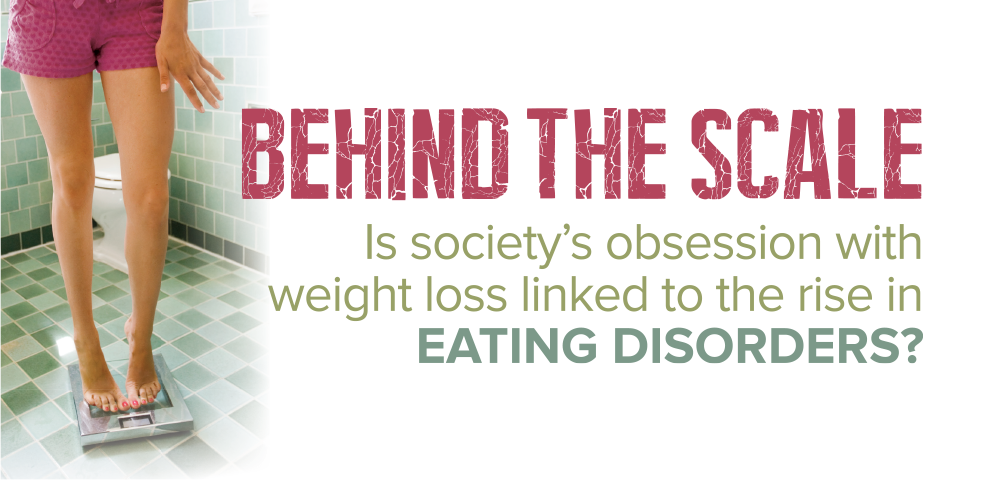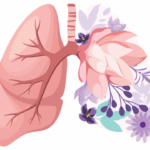
Is society’s obsession with weight loss linked to the rise in eating disorders?
Eating disorders (EDs) are disturbances in behaviours, thoughts, and feelings toward body weight and shape, and/or food and eating. Although EDs can occur in people of all ages, the most significant increase is seen in teens between the ages of 12 and 15. They can be severe conditions that affect physical, psychological, and social function. Types of EDs include anorexia nervosa, bulimia nervosa, binge eating disorder, and restrictive food intake disorder.
EDs affect every organ system in the body. Severe calorie restriction, purging, and binge eating can lead to nutrient deficiencies, which, in turn, cause various health risks, including:
- Gastrointestinal issues
- Cardiovascular disorders
- Brain and body developmental delays
- Muscle and bone loss
- Electrolyte imbalances
- Blood sugar problems
- Decreased hormone production
Over time, these physical effects can become chronic and even life-threatening.
Eating behaviour is multifaceted, but it has been suggested that individuals who have difficulties coping with stress and those with obesity are at greater risk. It is also believed that biological and psychological stress, hormonal imbalance, and environmental factors, as well as genetic vulnerability, influence the development of EDs.
The teen years are filled with body and brain changes that cause stress, confusion, and anxiety for many. This period of transition involves strong emotional challenges, including self-consciousness and self-esteem issues, because of the rapid pace of neurological, hormonal, and physical development. Emotional stress leads to increased secretion of several different stress hormones, including cortisol, which is involved in appetite regulation. Chronically elevated cortisol levels often lead to overeating “comfort foods,” resulting in abnormal eating behaviours such as binge eating and, in some cases, purging. EDs often develop as a coping mechanism to control some of these changes.
The uptick in the prevalence of EDs and other mental health concerns may largely be attributed to the increased effects of social media and other forms of media. Research also confirms that people who spend more time on social media may be at greater risk for developing EDs. The media glorifies overly thin body images that are fuelling the increase in EDs in this age group. Social media has altered teen interactions and self-perception, as they often compare themselves to filtered, distorted realities. These unrealistic expectations can have profound impacts on their body image and overall mental health.
Worldwide, research suggests millions of people are taking glucagon-like peptide-1 (GLP-1) analogs, such as Ozempic and Wegovy, for weight loss, which shifts the focus on weight loss for individuals of all ages. With all the current media focus on weight loss, including these so-called miracle weight loss drugs, what is this message doing to impressionable individuals? It reinforces that everyone should strive for thinness and be willing to do so by whatever means available, even at the expense of physical or mental well-being. Individuals who have body dysmorphia (an intense focus on perceived physical flaws) issues are much more vulnerable to these messages.
In more severe cases of EDs, where overall health is at risk, treatment may include psychotherapy, medications, family intervention, and nutritional replacement. However, most people with EDs, if not all, experience nutrient deficiencies.
SUPPLEMENT SUPPORT FOR EDs
Individuals of any age who have EDs often experience deficiencies in vitamins, minerals, and omega-3 fatty acids because of the misconception that “fats” cause weight gain.
Iron, manganese, and vitamin D are the most common nutrients depleted in bulimia and anorexia. A good multivitamin and mineral supplement, together with extra vitamin D and omega-3 fatty acids, can help prevent these nutrient deficiencies.
Eating disorders have become more prevalent in recent years, raising important concerns for families and loved ones. If you suspect a loved one is dealing with an eating disorder, remember you’re not alone – many resources and support networks are available. Approach the situation with compassion, as early intervention can significantly affect the journey to recovery.














